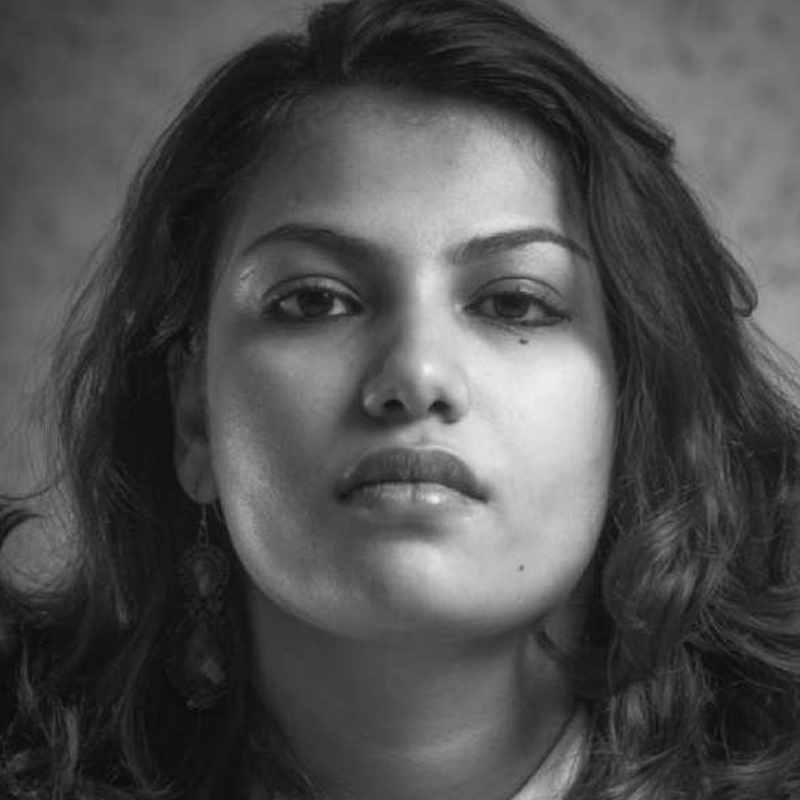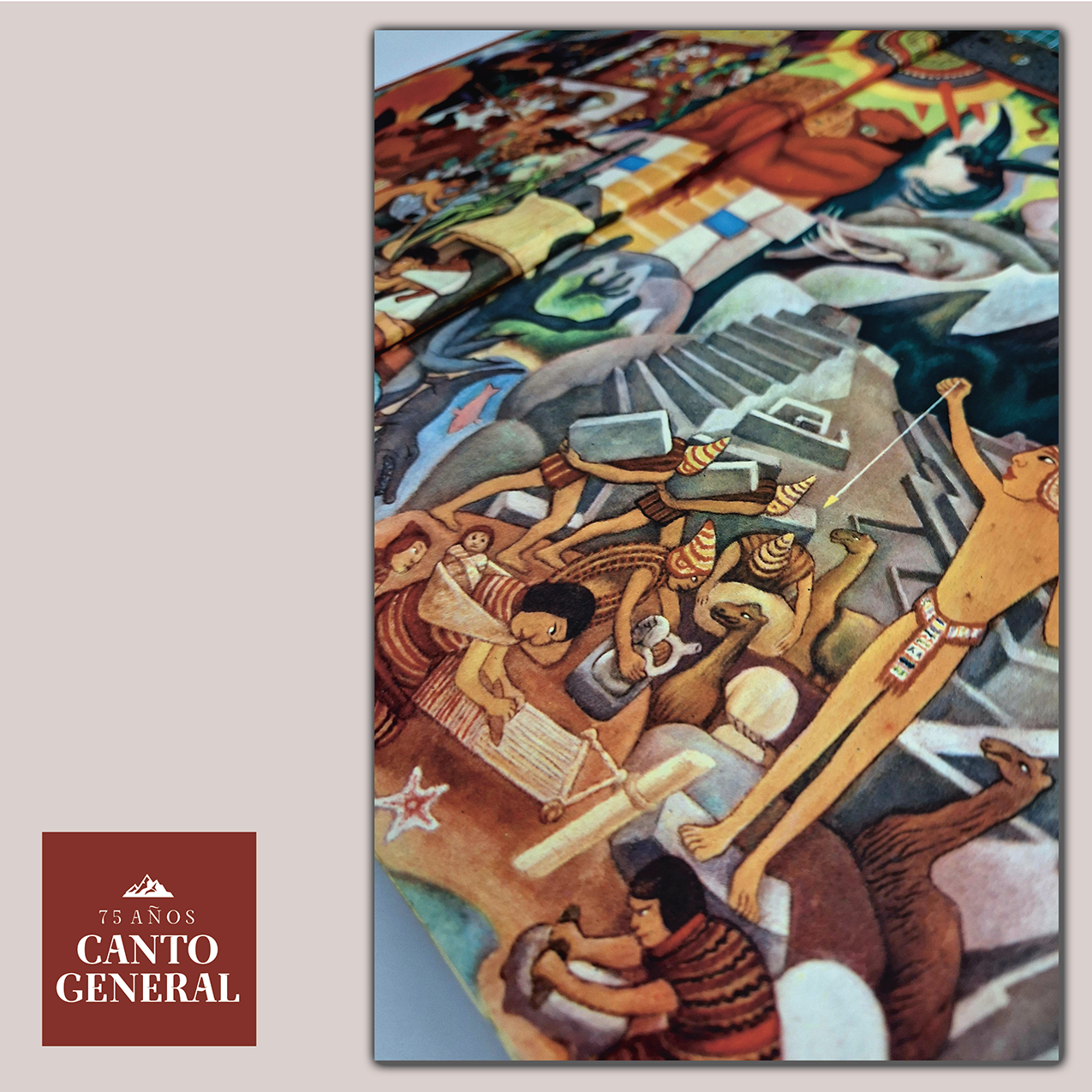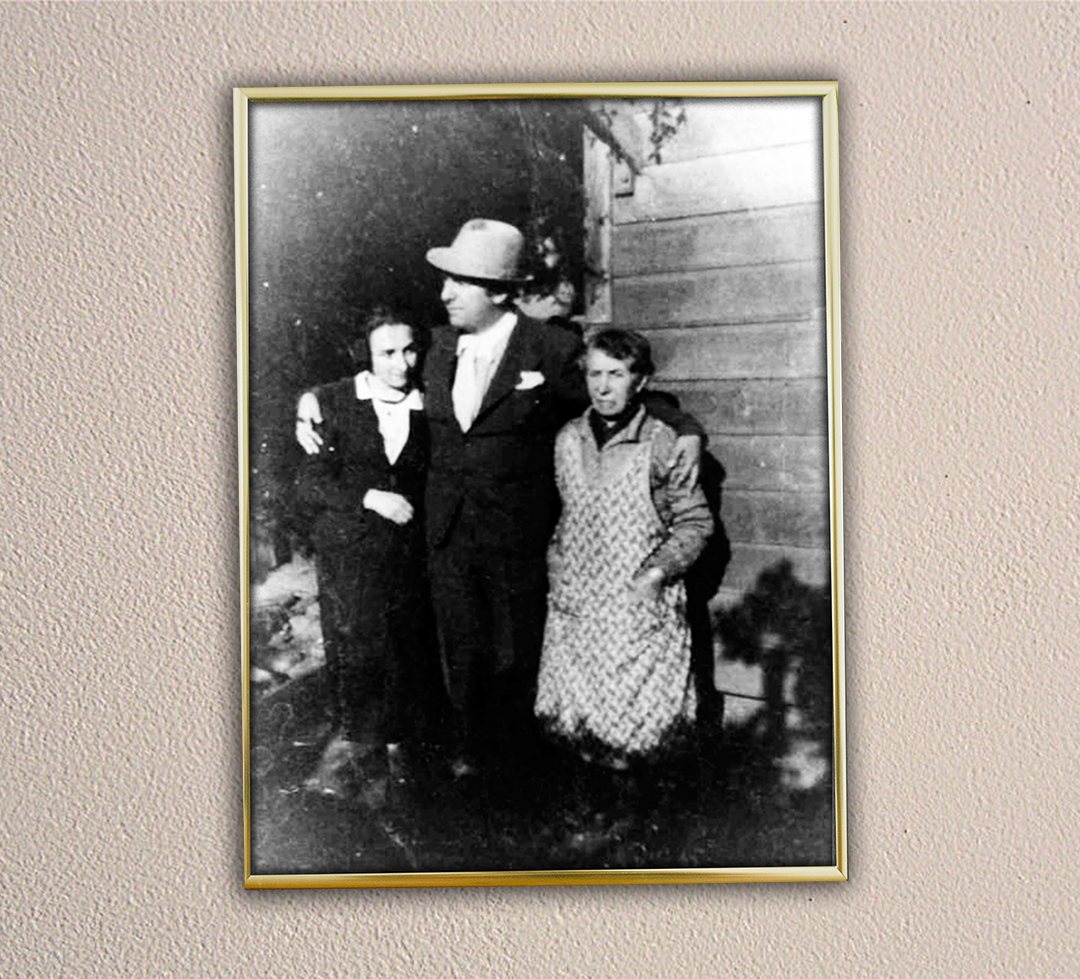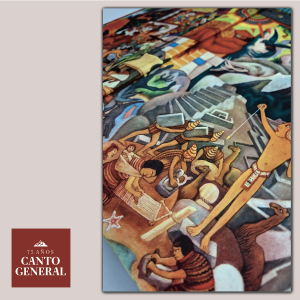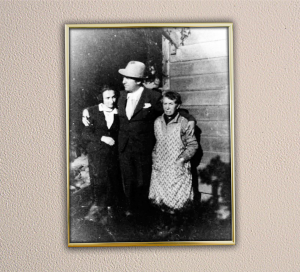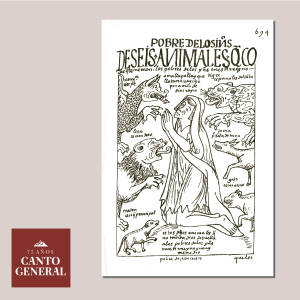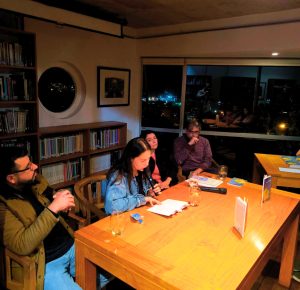Medha Singh es una poeta, editora y traductora de Delhi, India. Ella tomó su maestría de Jawaharlal Nehru University, Delhi y Sciences Po, París. Su libro debut Ecdysis (Paperwall, 2017) está disponible en Amazon y Paperwall.in. Sus escritos aparecen en Berfrois (Londres), Partisan Hotel (Manchester), 3:AM (París, Londres), Indian Quarterly (Delhi), Indian Literature (Delhi), Sangam, Guftugu, The Hindu, Scroll y Youth Ki Awaz entre otros. Tiene una charla TEDx sobre la discusión efectiva. Actualmente trabaja como investigadora asociada con la Raza Foundation. Para ellos ha traducido un libro de cartas de amor del francés al inglés, escrito por el pintor indio Sayed Haider Raza a su esposa, la artista Janine Mongillat. Se llama I Will Bring My Time [Llevaré mi tiempo] y este mes de febrero 2020, será presentado por Vadehra Art Gallery y la Raza Foundation.
Dinámica, inteligente y seria en sus carácter juguetón, hablar con Medha Singh y leer su poesía me contagia con su alegría profunda en la vida y el lenguaje.
¿Qué fue lo que primero te atrajo a escribir poesía, y por qué lo escribes ahora?
Difícil de decir. Los primeros poemas que leí fueron de mis padres (en hindi) y luego de Pablo Neruda. Comencé a sentir el encaprichamiento más extraño con la figura de Baudelaire a medida que crecía (su figura aparecía en mis sueños a menudo, menos sus poemas). Entonces John Keats. Rimbaud. Las mayores alegrías fueron las privadas: leer, dibujar, pasar las tardes escuchando música con mi hermana. Entramos en la vida (mi escritura, su pintura) como si estuviéramos pisando un lugar oscuro juntos con la esperanza de más misterio (con un desagrado temprano por el orden resuelto de la vida de la clase media), más intuición, más profundidad, más silencio, más ruido y color, más luz, más dolor/placer/anhelo. La intensidad más tranquila se apoderó de nuestros años de adolescencia, de haber aprendido y saber desde el principio que éramos más que carne; para mí eso significaba que los poemas eran tanto una extensión del cuerpo físico (por eso los poetas muertos parecían tan vivos cuando uno los leía). Compartí una gran soledad y la mejor adolescencia con mi hermana, y mucho de eso tenía que ver con poesía, cine, pintura. No sé cuándo comenzó. Uno no puede señalar un momento en el pasado, anotar las coordenadas de cuando se enamora. Imposible. Solo puedo señalar las tardes cuando vimos la puesta de sol desde nuestro balcón con un silencio cómplice, compartido. El futuro ocurre en el momento, nos enamoramos y desenamoramos de todas las cosas al mismo tiempo. Conozco poetas cuyos hijos decidieron ser matemáticos e ingenieros. No lo hice, bueno, de todos modos no fue una decisión de mi parte. Quería ser astrónomo, tener trece años e imaginar el resto de la vida en silencio durante días tranquilos, esperando a que los fotones alienígenas se acercaran y llamaran. Resulta que nunca tuve profesores suficientemente buenos en matemáticas. Nuestros ejercicios siempre parecían problemas filosóficos para esta jovencita, incitándola a hacer preguntas a los maestros que no tenían respuesta ni interés en asuntos tangenciales; o si lo hicieron, fue solo para reprenderme, para mantenerme enfocada en la tarea en cuestión. Fue un buen consejo, supongo. Aunque eso significaba que nunca pasaría un examen después del octavo grado. ¿Por qué escribo esto ahora? Desciende sobre mis días y pide que se escriba, así como esas preguntas fatuas rogaron a ser pronunciadas en las aulas encaladas de mi infancia.
¿Cuáles son los temas y cuestiones que estás tratando de resolver en tus poemas?
Pena, memoria, silencio. ¿Qué viene de todo eso? ¿O más bien, diciendo todo eso? Hay una gran complejidad en las cosas que nombramos, nombrar apenas se parece a la verdad, porque nombrar no implica que el significado pueda reducirse a una singularidad. Por otra parte, está la verdad prelingüística de todas las cosas, y luego está la verdad lingüística como lenguaje original (cualquier idioma), como fuente, como aquello que da carne a lo etéreo, lo hiperreal. Socorro para la filistea absorta en sí misma, caverna tibia de pertenencia para la enana temblorosa, un bastón para la lisiada enojada que queda sola en el estacionamiento. El lenguaje nos otorga categorías, una red con la cual aprehender la materialidad. Y después se queda en nada. La poesía es la confesión silenciosa del lenguaje, escúchala proclamar: “Acá estoy, y te fallaré.” Categorías sumadas para formar otra categoría. Los conceptos giran y juegan dentro de la filosofía, que tiene su propio registro y que usa el lenguaje, como lo concomitantemente reconoce. Los etimólogos afirman que son ellos, de hecho, quienes conocen la historia del universo, ese sutil dominio sobre las complejidades del mundo del lenguaje, del cosmos, ya que todo lo que conocemos hoy existe como y dentro del lenguaje. No es cierto. No es totalmente cierto. La maestra de mi madre le dijo una vez que “el lenguaje es la casa del ser”. Bueno, ¿es este ser romántico o racional? ¿Habita en las lenguas romances o en las germánicas? ¿Por qué son las lenguas eslavas más frías que las lenguas semíticas? No lo sé. Canto, me río, respiro, lloro, me callo, me pongo nerviosa. Tú también; y mientras me presencies realizar estas actividades comunes, tú también te presentas. El acto está en el actuar. Lo real en lo virtual. Y a la inversa también. Es tu ser el que se transforma a través de la catarsis cuando la catarsis corre dentro de las venas de un lenguaje familiar. ¿Quién dice “Yo” en el poema? Esta lírica “Yo”. ¿Habla o experimenta el habla? ¿Por qué no es un “yo”, en minúscula? Creo que un pronunciamiento más pequeño como el “je” francés es mejor. Disminuyo hasta un punto, y después de eso, no hay nada que yo sepa, menos en el sentido socrático, de aceptar los límites del propio conocimiento. ¿Cuál es la diferencia entre realizar y hacer? ¿Cuál es la diferencia entre verdad y lenguaje? ¿Qué es diferencia?
¿Cómo describirías la situación de la poesía india en este momento y tu relación con ella?
Funciono en este espacio más como una editora. Desde la cima de esta colina, el escenario parece que hay demasiada gente que escribe poesía, y poca que la escribe bien; incluso menos quieren ser editores, y el número de editoriales se reduce aún más. Aun así, los que aspiran a escribir son los únicos que leen, y nadie más. Las personas que buscan publicar son agotadoras (las redes sociales pueden ser un peligro), y insultan esta industria como vano, vaga y exclusiva, cuando no encuentran una buena carrera en ningún lado; los escritores publicados lo tildan de apática sin tener en cuenta algunas de las mejores voces de su generación, desaniman a los autores jóvenes de escribir (¡Oh, mirar este mundo odioso, plagado de celos, competencia trivial y la noción tan banal y sin sentido de inmortalidad! ¿Por qué debería alguien intentar, si los ancianos están allí para decirnos que no vale la pena!), desentrañan una música de su juventud y hacerla pública (los sentimientos pueden ser asquerosos en todos, pero para algunos, particularmente los sentimientos masculinos con respecto a su propio obsoletismo), y después se lamentan por nuestros autores jóvenes e ingratas que carecen de respeto por la tradición (claro, algunos de ellos realmente podrían hacer bien en leer y escribir más, y hablar menos). Un lugar lleno de ruido y belleza, caos y complejidad, la poesía india en inglés es el menos interesante de todos los espacios de poesía india que existen (en veintiséis idiomas). Todos son iguales en este espacio. De vez en cuando algún experimento formal se lleva a cabo en nombre de la posmodernidad, pero también me preocupa la falta de técnica en la poesía que trae consigo. Bombay no le gusta Delhi; Delhi es indiferente al mundo. La poesía india en inglés está escrita en todo el país, y como dije mi relación con ella es más como editora que publica en ocasión (como un imperativo ético) que como una escritora que edita en ocasión (como ciudadana del mundo literario). En realidad, tampoco puedo decir eso. No quiero hacer ninguna declaración declarativa, no sé si hay una categoría estable que pueda ofrecer. No sé qué relación tengo con este espacio. Es demasiado pequeño para algunos y demasiado vasto para otros. Soy tu humilde observadora, quitando la niebla de mis lentes de lectura.
Recientemente terminaste de traducir las cartas de amor del fallecido pintor progresista indio S.H. Raza a su difunta esposa Janine Mongillat. ¿Podría contarnos un poco sobre cómo encontró estas letras y el proceso de traducirlas del francés al inglés?
Conocía a Raza cuando yo era adolescente, cuando él había regresado a Delhi, y recuerdo haberlo conocido en uno de sus cumpleaños (fui con mis padres) hace mucho tiempo. Era frágil, viejo, hermoso, y su espíritu era más grande que su cuerpo. Nunca solo, nunca callado, era incesante en su discurso y su pensamiento. Esa noche, me fui a casa en gran parte indiferente a todo, menos una vaga curiosidad sobre quién era. No era una imaginación trabajando hacia una ficción futurista, sino una que me acercaba al espectro real de la obra de este artista. Me sentí una concurrencia interna con sus pinturas, sus especulaciones filosóficas, su elecciones de color. Solía pintar durante algún tiempo, y antes de graduarme de la escuela secundaria, estaba completamente segura de que después de mi sueño de astronomía, la segunda mejor opción era ser pintora. (Como la mayoría de las cosas de mi adolescencia, dejé ese pensamiento atrás, aunque todavía dibujo.) En el verano de 2019, escuché en alguna parte que la persona que tenía la intención de traducir sus cartas iba a dejar la fundación, dejando un puesto vacante. Tenía una gran necesidad de empleo, igual a la mayoría de las personas en esta economía en quiebra, así que me apresuré y hablé con el Dr Vajpeyi, quien lo mencionó en una de sus reuniones con un amigo en común. Lo demás comenzó a encajar. Voy a entregar el libro el 17 de febrero de 2020, a través de la Raza Foundation, con la ayuda de la Vadehra Art Gallery.
¿Podría contarnos un poco sobre tu trabajo en la Raza Foundation y el tipo de cultura india que cultiva y promueve?
Estamos muy involucrados en los estilos indios tradicionales y clásicos de danza, música y poesía en términos de nuestros actividades culturales. Otorgamos becas y unimos esfuerzos con talentos de nivel universitario para promover su trabajo. Los autores reciben becas para trabajar en proyectos (estos se eligen a discreción de la fundación, no se considera trabajo no solicitado). Además de estos eventos, tenemos series de conferencias conmemorativas para Mahatma Gandhi, Charles Correa y Kelucharan Mohapatra, entre otros. Tenemos una editorial que ha publicado obras por incondicionales como el gran cineasta Kumar Shahani, sobre su técnica, en un libro que es un hermoso objeto. Sin embargo, no somos toda estética: también tenemos paneles y seminarios regulares sobre política, filosofía, historia y sociología. Nuestro boletín semestral se llama Swasti, pueden leerlo para seguir todo lo que sucede. Además de todo esto, tenemos dos revistas, Aroop y Samas, con diálogos sobre arte y literatura respectivamente. Y realizamos una gran cantidad de exposiciones cada año, para promover talentos tanto en desarrollo como maduros. Hay mucho trabajo por delante.
Para ti, ¿hay alguna diferencia entre la poesía “femenina” y la “feminista”? ¿Cómo te relacionas con el concepto de romance, que has defendido en varias publicaciones? ¿Cómo se aplican estos temas a tu propio trabajo?
El término “femenino” no ha escapado por completo de las construcciones patriarcales, y en eso, es lo contrario de feminista. Además, dentro de la comprensión feminista de las “feminidades”, no todo es simplemente construcción cultural: estos matices crean versiones de feminidad que comparten el denominador básico de la agencia política. Una voz feminista en la literatura se dirige al mundo/convención/Estado consciente de su posición de sujeto, y con ese sentido de lugar, establece la virtud frente a un marco social básicamente vacío de la moralidad (sobre el cual se construye un estado patriarcal) . La voz femenina todavía está negociando su territorio en un mundo patriarcal (Emily Dickinson, Elizabeth Bishop), mientras otra voz feminista dice que nunca estuvo en negociación y que siempre ha sido nuestra (Maya Angelou, Subhadra Kumari Chauhan).
En una entrevista, mencionas la actitud punk, el vocabulario inventivo y el interludio cómico como formas de combatir la tendencia hacia una poesía demasiado seria. ¿Qué posibilidades y peligros presentan este tipo de técnicas? ¿Cómo se concilia esa alegría con la “dificultad” de palabras como tu título Ecdysis?
No se puede afirmar con certeza que cualquier poesía es “demasiado” seria; la seriedad es algo bueno. Es nuestro único factor redentor: que podemos evaluar el valor de algo y otorgarle cualquier seriedad que merezca a nuestros ojos. El chiste más inteligente es tan serio como cualquier declaración intelectual para mí. La posibilidad surge en la creación de esta licencia. Como primer libro, Ecdysis concede a muchos el permiso para hacer el tipo de cosas groseras que uno no debería (estaba leyendo punk y distorsionando la convención, que finalmente se interpretó erróneamente como una falta de forma, estilo—bueno, ya sabes cómo tienden a ser estos viejos pesados), que es posible que no se registre dentro de los espacios literarios tradicionales (como nada sin una conciencia real de la forma puede). Pero en el caso de Ecdysis (Poetrywala, 2017), estaba haciendo las cosas conscientemente. Mira, admito que lo que estaba haciendo era deliberadamente frívolo, pero un título como ese también dice: “Sé lo que estoy haciendo, conozco mi historia y todos mis mitos.” Esto me recuerda del poema de Pope, Un ensayo sobre la crítica:
Some by old words to fame have made pretence,
Ancients in phrase, mere moderns in their sense;
Such labour’d nothings, in so strange a style,
Amaze th’ unlearn’d, and make the learned smile.
—An Essay on Criticism, Alexander Pope[Algunos por viejas palabras a la fama han fingido,
antiguos en frase, meros modernos en su sentido;
naderías tan laboradas, en tan extraño estilo,
sorprendan a los ignorantes, y hagan sonreír al erudito.
—Un ensayo sobre la crítica, Alexander Pope]
¿Cuáles son diez libros que han marcado tu pensamiento o estilo?
Difícil. Soy cien voces. Recuerdo que el eje más agudo en mi vida poética fue dentro del período de una semana leyendo ficción en mis años universitarios: Juventud (J.M. Coetzee), Un hombre soltero (Christopher Isherwood), fragmentos de Los restos del día de Ishiguro. Más tarde, los modernistas, y principalmente el grupo de Auden (durante y después de mi maestría en JNU) que me permitía ser socialista y poeta como ellos, bien aterrizados en lo material debido a su socialismo. Corres el riesgo de la locura las más de las veces, y la política es el ancla del espíritu, como el lenguaje lo es para la imaginación. Leer Solicitud para una liberación del sueño de Tony Hoagland, y sentirme tranquilizarme, observar este ser transformarse, ces jours ci.
¿Qué verso llevas como mantra dentro de ti?
With the farming of a verse
Make a vineyard of the curse,
Sing of human unsuccess
In a rapture of distress;
In the deserts of the heart
Let the healing fountain start,
In the prison of his days
Teach the free man how to praise.
—In Memory of W.B. Yeats, W.H. Auden[Con el cultivo de un verso
haz de la maldición una viña,
canta sobre el fracaso del hombre
en un rapto de angustia;
deja fluir la fuente que cura
en los desiertos del corazón,
en la prisión de sus días
enseña al hombre libre la manera de alabar.
—En memoria de W.B. Yeats, W.H. Auden
traducción de Patricia Damiano]
Como poeta y lector de amplio alcance, abierta a muchas influencias culturales, ¿cuál ha sido su relación con el poeta chileno Pablo Neruda?
Adoro sus poemas, no adoro al hombre. Por esa razón, elogio sus poemas y hablo poco sobre el hombre.
“Poetry is language’s quiet confession…”
Medha Singh is a poet, editor and translator from Delhi, India. She took her M.A. from JNU, Delhi and Sciences Po, Paris. Her maiden book Ecdysis (Paperwall, 2017) is available on Amazon and Paperwall.in. Her work has previously appeared or is forthcoming in Berfrois (London), Partisan Hotel (Manchester), 3:AM (Paris, London), Indian Quarterly (Delhi), Indian Literature (Delhi) Sangam, andGuftugu among others. She has bylines in The Hindu, Scroll, Youth Ki Awaz among others. She delivered a TEDx talk on effective arguing. She currently works as a Research Associate for The Raza Foundation. For them, she has translated a book of love letters from the French, penned by Indian painter Sayed Haider Raza to artist and wife Janine Mongillat, I Will Bring My Time (Vadehra Art Gallery, Raza Foundation, February 2020).
- JS: What first drew you to writing poetry, and why do you write it now?
MS: Hard to say. The first poems I ever read were by my parents (in Hindi), and then Pablo Neruda. I developed the strangest infatuation with the figure of Baudelaire as I grew older (his figure appeared in my dreams often – less so his poems). Then John Keats. Rimbaud. The greatest joys were the private ones: reading, drawing, spending afternoons listening to music with my sister. We went into life (my writing, her painting) as though we were treading a dark place together in the hope of more mystery (with an early distaste for the resolved orderliness of middle class life), more intuition, more depth, more silence, more noise and colour, more light, more pain-pleasure-longing, the quietest intensity took over our teenage years, to have learnt and known early on that we were more than flesh; to me that meant that poems were as much an extension of the physical body, (which is why dead poets seemed so alive as one read them). I shared a great solitude, and the greatest adolescence with my sister, and much of that had to do with poetry, cinema, painting. I don’t know when it began. One can’t point to a moment in the past, note the coordinates of when they fell in love – impossible. I can only point to the evenings where we watched the sun set from our balcony with a shared, complicit silence. The future occurs in the moment, we are falling in and out of love with all things at the same time. I know poets whose children decided to be mathematicians and engineers; I did not – well, not a decision on my part anyway. I wanted to be an astronomer, thirteen and imagining the rest of life spent quietly through quiet days waiting for alien photons to approach and call. As it turns out, I never had good enough teachers in mathematics. Our exercises always seemed like philosophical problems to this young girl, spurring her on to put questions to teachers who had neither answer nor interest in tangential matters; or if they did, it were only to reprimand me, to stay focused on the task at hand. It was good advice, I suppose. Even though it meant I were never to pass an exam after eighth standard. Why do I write it now? It descends upon my days and asks to be written, just as those inane questions begged to be uttered in the white washed classrooms of my girlhood.
JS: What are the themes and issues you are trying to work out in your poems?
MS: Grief, memory, silence. What comes from all that? Or rather, saying all that? There is great complexity in the things we name, naming hardly bears resemblance to truth, because naming doesn’t entail meaning can be reduced to a singularity. Then again, there is the pre-linguistic truth of all things, and then there is linguistic truth as originary language (any language), as source, as that which gives flesh to the ethereal, the hyper-real. Succour to the self absorbed philistine, warm cavern of belonging to the shivering runt, a walking stick to the angry cripple left alone in the parking lot. Language grants us categories, a web with which to apprehend materiality. Then it comes to naught. Poetry is language’s quiet confession, hear her proclaim ‘I am here, and I will fail you.’ Category totalled into category. Concepts turn and play within philosophy, which has its own register and uses language, as it concomitantly acknowledges it. Etymologists claim it is they, in fact, who know the history of the universe, that fine mastery over the intricacies of the world of language, of the cosmos, as everything we know today exists as and within language. Not true. Not completely true. My mother’s teacher once told her, ‘language is the house of being’. Well, is it a romantic or a rational being? Does she dwell in the romance languages, or the Germanic ones? Why are Slavic languages colder than Semitic languages? I don’t know. I sing, I laugh, I breathe, I cry, I fall silent, I get nervous. So do you; and as you witness me perform these commonplace activities, you perform too. The act is in the acting. The real in the virtual. And the other way too. It is your being that transforms through catharsis when catharsis runs within the veins of a familiar language. Who is this speaking ‘I’ in the poem? This lyrical ‘I’. Is it speaking or experiencing speech? Why isn’t it an ‘i’? A smaller pronouncement like the French ‘je’ is better, I think. I diminish to a point, and after that there is nothing that I know – except in the Socratic sense, one accepts the limits of one’s own knowledge. What is the difference between performing and doing? What is the difference between truth and language? What is difference?
JS: How would you describe the situation of Indian poetry at the moment, and your relationship to it?
MS: I function within this space more as an editor. At the top of this hill, the scenery looks as though there are far too many people writing poetry, few writing it well, even fewer who want to be editors, and the number of publishers shrinks even further. In comparison, those who aspire to write are the only ones who read (and no one else). People looking to publish are obstreperous (the perils of social media), call this non-industry vain, vague, exclusive, and don’t find a good run anywhere; published writers call it apathetic, without regard for some of the best voices of its generation, they discourage young authors to write (oh, to look at this odious world, rife with its jealousies, petty competition and the ever so trite, meaningless notion of immortality! Why should anyone even try, if the elders are there to tell us it’s not worth it!), to tease out a music from their youth and make it public (feelings are disgusting to everyone; but to some, especially male feelings with regard to their own obsoletism), then lament over our invidious young authors who lack regard for tradition (it’s true, some of them really do, and could do well to read more, write more, and talk less). A place full of noise and beauty, chaos and complexity, Indian poetry in English is the least interesting of all the Indian poetry spaces that do exist (in twenty six languages), everyone is like each other in this space. Every now and then some formal experiment takes place in the name of postmodernism, but I also worry about the deskilling of poetry it brings with it. Bombay does not like Delhi. Delhi is indifferent to the world. Indian poetry in English is written all over the country, my relationship with it is more as an editor, who occasionally publishes (as an ethical imperative) than a writer who occasionally edits (as a citizen of the literary world). Actually, I can’t say that either. I don’t want to make any declarative statement, I don’t know if there is a stable category I can offer. I don’t know what relationship I have with this space. It’s too small for some, and far too vast for others. I’m your humble observer, cleaning the fog off my reading glasses.
JS: You recently finished translating the love letters of late Indian progressive painter S.H. Raza to his late wife Janine Mongillat. Could you tell us a bit about how you encountered these letters, and the process of translating them from French to English?
MS: I encountered Raza as a teenager, when he had returned to Delhi, and recall meeting him at one of his birthdays (I went with my parents) a long time ago. He was frail, old, beautiful, and his spirit was bigger than his body. Never alone, never quiet, unceasing in speech and thought, that evening, I went home, largely indifferent to everything, except a vague curiosity about who he was. It was not an imagination working towards some futurist fiction, but one that brought me closer to the real specter of this man’s work. I found an inner concurrence with his paintings, his philosophical speculations, his choice of colour. I used to paint for some time, and before graduating from high school, I was entirely sure, that the second best thing to my astronomy dream was to be a painter (and like most things from my adolescence, I left that thought behind, though I still draw). In the summer of 2019, I heard from somewhere that the person who meant to translate his letters were to leave the foundation, opening up a job vacancy. I was in dire need of employment (as most people are in this ruptured economy), and so I made haste, spoke to Dr. Vajpeyi, who brought it up in one of his meetings with a common friend. The rest fell in place. The book is due on the17th of February 2020, through the Raza Foundation with the help of Vadehra Art Gallery.
JS: Could you tell us a little about your work at the Raza Foundation, and the kind of Indian culture it cultivates and promotes?
MS: We’re very much involved in Indian traditional and classical styles of dance, music and poetry in terms of our cultural endeavours. We grant fellowships and join hands with collegiate level talent and promote their work. Authors get fellowships to work on projects (these are chosen at the discretion of TRF, no unsolicited work is considered). Besides these events, we have memorial lecture series for Mahatma Gandhi, Charles Correa, Kelucharan Mohapatra among others. We have a press that has published work by stalwarts like Kumar Shahani, the great filmmaker, about his technique, finished as a beautiful object for a book. We’re not all aesthetics, however: we also have regular panels and seminars on politics, philosophy, history and sociology. Our bi-annual newsletter is called Swasti, you may peruse it to keep track of all that goes on. Besides all this, we have two magazines Aroop and Samas. Dialogues on art and literature, respectively. We do a host of exhibitions every year as well, promoting both developing and mature talent. We have a lot on our plate.
JS: For you, is there a difference between «feminine» and «feminist» poetry? How do these relate to the concept of romance, which you have defended in several publications? How do these themes apply to your own work?
MS: The term ‘feminine’ has not escaped patriarchal constructions completely, and in that, it is the opposite of feminist. Also, within the feminist understanding of ‘femininities’, all is not simply cultural construction – these nuances create versions of femininity sharing the basic denominator of political agency. A feminist voice in literature addresses the world/convention/State with a conscious awareness of her subject position, and with that sense of place, she establishes virtue in the face of a basically morally empty social framework (that a patriarchal state is constructed upon). A feminine voice is still negotiating her turf in a patriarchal world (Emily Dickinson, Elizabeth Bishop), a feminist voice is saying it was never up for negotiation anyway, it has always been ours (Maya Angelou, Subhadra Kumari Chauhan).
JS: In an interview, you mention punk attitude, inventiveness of vocabulary and comic relief as ways of combating the tendency toward an overly serious poetry. What possibilities and dangers do these kinds of techniques present? How do you reconcile such playfulness with the «difficulty» of words like your title Ecdysis?
MS: One can’t assert with any certainty that any poetry is ‘overly’ serious; seriousness is a good thing. It’s our one redeeming factor: the we can evaluate the worth of something and bestow upon it any seriousness it merits in our eyes. The cleverest joke is as serious as any intellectual statement to me. The possibility emerges in the creation of that possibility – as a first book, Ecdysis grants many the permission to do the kind of rude thing one should not (I was reading punk and distorting convention, which was eventually misunderstood as a lack of form, style – well, you know how these stodgy old men tend to be), that it may not register within traditional literary spaces (and nothing without an actual awareness of form does), but in the case of Ecdysis (Poetrywala, 2017), I was doing things consciously. I mean, look, I understand what I was doing was deliberately flippant,
but a title like that also says “I know what I’m doing, I know my history, all my myths.” This brings to mind Pope’s poem An Essay on Criticism –
“Some by old words to fame have made pretence,
Ancients in phrase, mere moderns in their sense;
Such labour’d nothings, in so strange a style,
Amaze th’ unlearn’d, and make the learned smile.”
~An Essay on Criticism, Alexander Pope
JS: What are ten books that have marked your thought or style?
MS: Difficult. I am a hundred voices. I do remember the sharpest pivot in my poetic life was within the period of a week reading fiction in my undergraduate years: Youth (J.M. Coetzee), A Single Man (Christopher Isherwood), excerpts from Ishiguro’s The Remains of the Day. Later, the modernists, and hen primarily the Auden group (during and after my master’s in JNU) that permitted one to be a socialist and a poet, well and truly materially grounded owing to their socialism. (You risk madness so much more often than not, politics is the anchor of spirit, as language is to imagination.)
Reading Tony Hoagland’s Application for Relase From the Dream, and feeling myself quiet down, observe this being transform, ces jours ci.
JS: What verse do you carry as a mantra within you?
MS: “With the farming of a verse
Make a vineyard of the curse,
Sing of human unsuccess
In a rapture of distress;
In the deserts of the heart
Let the healing fountain start,
In the prison of his days
Teach the free man how to praise.”
~In Memory of W.B. Yeats, W.H. Auden
JS: As a poet and wide-ranging reader open to many cultural influences, what has your relationship been with the Chilean poet Pablo Neruda?
MS: I love his poems, don’t love the man. For that reason, I laud his poems, and talk little about the man.


